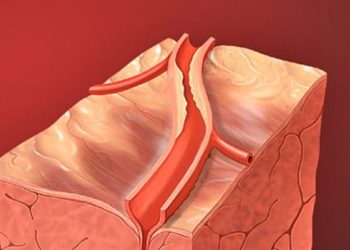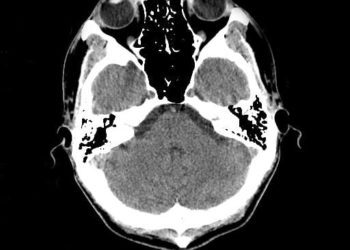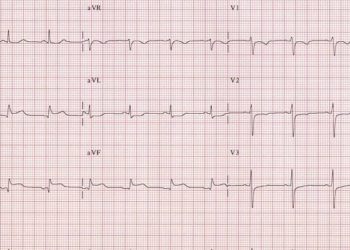Colchicine not beneficial after acute myocardial infarction for reducing cardiovascular events
1. In this randomized controlled trial, in patients who had a myocardial infarction, a three-year treatment with colchicine was not superior to placebo in cardiovascular adverse events.
2. Colchicine was associated with a higher incidence of diarrhea than placebo.
Evidence Rating Level: 1 (Excellent)
Study Rundown: Inflammation is an important factor in the pathophysiology of atherosclerosis and acute coronary syndromes, where higher levels of inflammatory markers have been associated with worse outcomes. The anti-interleukin-1b drug canakinumab was found to reduce ischemic events after initial myocardial infarctions (MIs). Colchicine, an anti-inflammatory and anti-rheumatic drug, has shown benefits in cardiovascular outcomes in patients with prior MIs and ischemic strokes. This study assessed the effect of daily colchicine therapy started soon after an MI. Although C-reactive protein levels were significantly reduced by colchicine, the composite outcome of cardiovascular death, recurrent MI or stroke, or unplanned coronary revascularization did not differ between colchicine and placebo. Other secondary outcomes also did not significantly differ between the two groups. Colchicine also did not result in an increased risk of serious infections, but diarrhea occurred more frequently with colchicine. Racial minorities were underrepresented and the discontinuation rate was higher than expected in this trial, although these limitations were not expected to affect the overall conclusions. Nevertheless, these results added to the evidence that colchicine might not impact cardiovascular outcomes in patients who had acute MIs.
Click here to read the study in NEJM
In-Depth [randomized controlled trial]: This was a randomized 2-by-2 factorial study investigating colchicine against a placebo and spironolactone against a placebo among patients who had a myocardial infarction. These results were for the colchicine trial. Patients were eligible for inclusion if they had a ST-elevation MI and underwent percutaneous coronary intervention (PCI), or a non-ST-elevation MI followed by PCI with risk factors including left ventricle ejection fraction ≤45%, diabetes, multi-vessel disease, prior MI, or age older than 60 years. In total, 7,062 patients were randomized to receive either colchicine or placebo as soon as possible following the index PCI. The primary outcome was a composite of death from cardiovascular causes, recurrent MI, stroke, or unplanned ischemia-driven coronary revascularization. The median follow-up was three years. The primary outcome occurred in 322 patients (9.1%) in the colchicine group and 327 patients (9.3%) in the placebo group (hazard ratio [HR] 0.9, 95% confidence interval [CI] 0.85-1.16, p=0.93). The secondary outcome occurred in 6.8% of patients in the colchicine group and 7.1% in the placebo group (HR 0.98, 95% CI 0.82-1.17). Components of the primary outcome also did not differ between the two groups. The least-squares mean difference in the C-reactive protein levels between the colchicine and placebo groups at three months was -1.28mg/L (95% CI -1.81 to -0.75). The groups also did not differ in the rate of overall adverse events and serious adverse events. However, colchicine was associated with more frequent diarrhea (10.2%) than placebo (6.6%). Colchicine, overall, did not appear to alter the composite primary outcome in patients who had an MI after 3 years of treatment.
Image: PD
©2025 2 Minute Medicine, Inc. All rights reserved. No works may be reproduced without expressed written consent from 2 Minute Medicine, Inc. Inquire about licensing here. No article should be construed as medical advice and is not intended as such by the authors or by 2 Minute Medicine, Inc.









